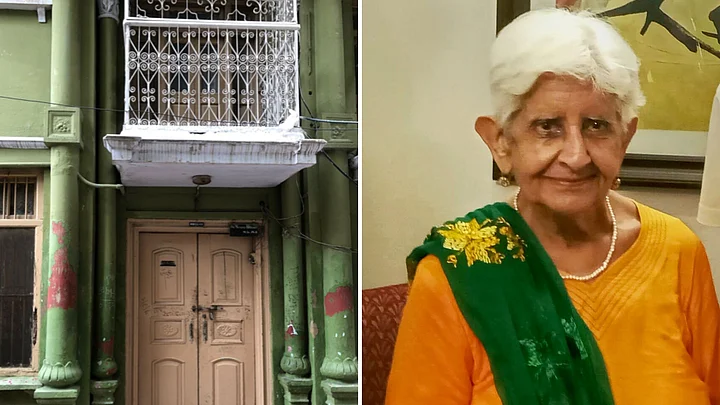Childhood memories flooded 90-year-old Reena Verma's mind as she became overjoyed and emotional on visiting her home in Pakistan, which she had to leave 75 years ago at the time of the Partition.
On reaching Prem Nawas Mahalla on Wednesday, the residents in the neighbourhood gave her a rousing welcome. Drums were played and flower petals were showered on her as she arrived, and an excited Verma could not control herself and started dancing.
'Love on Both Sides of Border'
“The people living on both sides of the border love each other very much and we should remain as one,” she said, reported news agency PTI.
She kept looking at the door and wall of the house, including her bedroom, yard, and sitting room for a long time, the report added.
The 90-year-old also told neighbours that she used to stand on the balcony and hum when she was a little girl.
Her family had sent a 15-year-old Reena and her siblings to Solan in March 1947, just a few months ahead of the Partition.
At that time, neither her nor her family had imagined that they would never return home.
"For at least 23 years, my mother used to say that we will go back home – 'Earlier, there was British Raj, now Muslims will govern us. It doesn’t mean that we won’t go back home.' Ever since I received the visa, or since I applied for the visa, basically, if anybody asks me, I have been living in Pindi, in my home. Those memories are returning. Of my family...of everyone," Reena Verma told The Quint.
Reena grew up as 'Toshi,' with three sisters and two brothers, in a mixed-culture environment, music of Talat Mahmood, and lots of books.
"The people of Pakistan – they are just like us. They also want to meet us. We also want to meet them. Now the government only knows and religious people know, why do they do this? It should not be done like this. We should respect each other’s religion. Only then we can live together," she told The Quint.
(With inputs from PTI.)
(At The Quint, we question everything. Play an active role in shaping our journalism by becoming a member today.)
